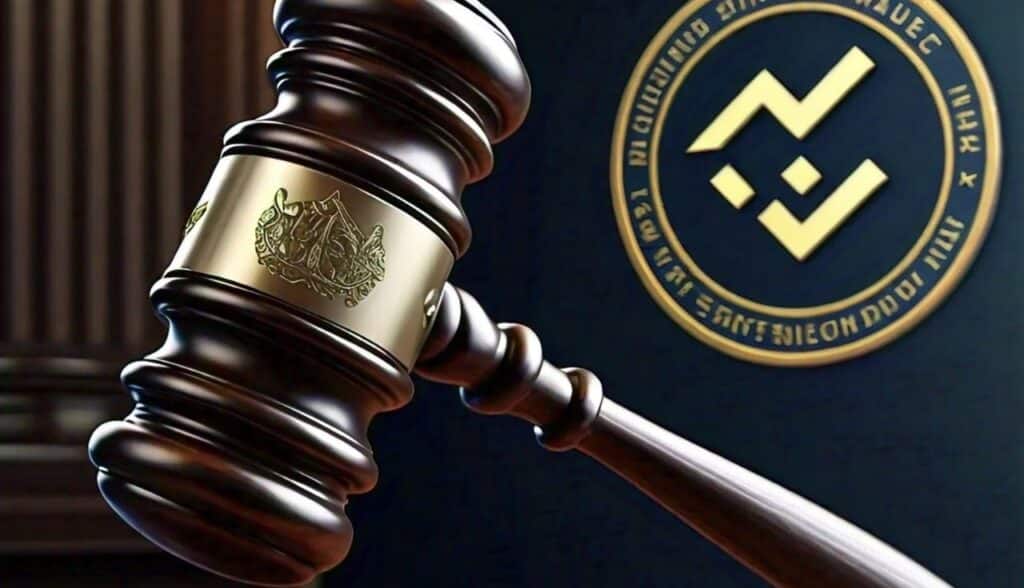The ongoing legal issues surrounding two Binance executives in Nigeria have captured the attention of both the cryptocurrency community and international observers. Apart from the legal ramifications for the crypto sector, the Binance vs Nigeria trial—which is set to start on July 5—has been a focal point because of health and humanitarian issues related to the proceedings.
Globally minded stakeholders are eagerly observing, keen to see how things will turn out and what precedents they can create for African market cryptocurrency operations.
Binance vs Nigeria: Health Concerns Over Shadow Legal Proceedings
Tigran Gambaryan, a Binance executive, has been in custody since February on serious charges of money laundering levied by Nigeria’s Economic and Financial Crimes Commission (EFCC). His colleague Nadeem Anjarwalla managed to escape custody in March, fleeing to Kenya, and has since been at the center of extradition talks.
While the charges initially included tax evasion, these were dropped by Nigeria’s Federal Inland Revenue Service in June, leaving the money laundering accusations in place. This decision has not eased the tensions, particularly due to the deteriorating health of Gambaryan, who has been battling double pneumonia and malaria, alongside other physical ailments, during his detainment. This situation raises significant humanitarian concerns, spotlighting the conditions under which he has been held.
Binance vs Nigeria: Family Hopes for Resolution Amid Legal Struggles
The trial’s resumption is awaited with both hope and concern. According to news reports, Gambaryan’s family and his legal team have voiced their worries about his ability to endure the trial given his health issues. His wife, Yuki, who has not had direct contact with Nigerian authorities, remains in constant communication with the U.S. State Department and the U.S. Embassy in Abuja, advocating for her husband’s release or at least an improvement in his treatment.
“I thought the U.S. Government response was quite slow at first, especially considering that Tigran used to work for the U.S. Government,” Yuki stated. “However, I believe they have noticeably increased their efforts and engagement recently […] In my eyes, it is evident any issues between Binance and the Nigerian authorities can and should be resolved without Tigran being caught in the middle.”
Yuki Gambaryan initiated a petition to facilitate her husband’s return to the U.S., which had garnered 4,891 signatures at the time of reporting — just about a hundred less than its target of 5,000. The outcomes of this petition are expected to be presented to the U.S. State Department, President Joe Biden, the EFFCC, and the Nigerian government.

Binance vs Nigeria: International Reactions and Efforts
The case has drawn the attention of not only the cryptocurrency world but also international government bodies. On June 20, U.S. Representatives French Hill and Chrissy Houlahan visited Gambaryan in Kuje Prison, urging Nigerian authorities to consider the humanitarian aspects and drop the charges. They cited the executives’ willingness to cooperate and the overly punitive nature of their detention.
Moreover, the global crypto community and significant stakeholders within the industry, including Binance itself, have been actively discussing the implications of this trial on international business operations and the regulatory environments for cryptocurrencies like Bitcoin (BTC) and Ethereum (ETH). This scenario has spurred more general discussions on the regulatory difficulties challenging the cryptocurrency sector, especially in areas like Nigeria, which is considered as a growing market for digital currencies.
Binance vs Nigeria: Keeping the Community Informed
In summary, the Binance vs Nigeria case is more than a legal battle; it’s a litmus test for the integrity of international business operations and the humane treatment of global executives caught in the crossfire of regulatory frameworks. As we approach the July 5th hearing, the international community holds its breath, hoping for resolutions that respect both the rule of law and human rights.
As the trial progresses, it’s crucial to stay updated on every development, as the outcome could have significant implications for the regulation of cryptocurrencies not just in Nigeria but globally. The BIT Journal continues to provide timely updates and in-depth analysis on this case, helping readers understand the intricate balance between regulatory enforcement and individual rights within the dynamic landscape of global finance.
Stay tuned to this publication for more updates on this developing story and other critical crypto updates, ensuring you’re always informed about the latest news in the world of Bitcoin (BTC), Ethereum (ETH), and other major cryptocurrencies.





























